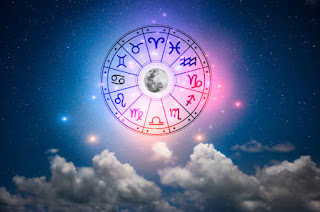Search This Blog
money saving tips for canadians, best saving tips for canadians of all ages. MoneySavings and Canadian news, financial news
Featured
article
- Get link
- X
- Other Apps
Unpacking the Canal Controversy: The Role of Hong Kong’s CK Hutchison Holdings

Amid mounting geopolitical tensions and high-profile claims from President Donald Trump, a Hong Kong-based conglomerate has unexpectedly found itself at the center of a debate over control of one of the world’s most critical waterways. Trump has repeatedly asserted that China is “operating” the Panama Canal, a claim rooted in the involvement of CK Hutchison Holdings, a major global port operator.
CK Hutchison Holdings, operating under its Hutchison Ports division, secured a concession in 1997 to manage container facilities at both the Atlantic and Pacific entrances of the Panama Canal. This long-term arrangement, renewed in 2021 for a 25-year period, has drawn intense scrutiny from U.S. officials and lawmakers. Critics argue that this concession gives Beijing an indirect foothold at the canal, potentially allowing Chinese influence to shape operations at a key maritime chokepoint .
However, Panamanian authorities maintain that the canal’s governance remains firmly in their hands. The Panama Canal Authority, an independent entity, operates the waterway under strict neutrality treaties that preclude any discriminatory practices—including the alleged overcharging of American ships. While the Hong Kong-based company manages the port facilities, its role is strictly commercial and separate from the operational control of the canal itself.
Proponents of Trump’s narrative contend that, given recent changes in Hong Kong’s political landscape and its national security laws, companies like CK Hutchison could be compelled to align with Beijing’s strategic interests. They warn that in a conflict scenario, the presence of a Chinese-linked entity at both canal entrances could pose significant risks to U.S. maritime security. Yet experts and Panamanian officials alike stress that such claims oversimplify a complex reality. The contractual and operational frameworks governing the concessions ensure transparency and adherence to international law, leaving little room for unilateral control by any foreign power.
The controversy underscores broader concerns about foreign investment in critical infrastructure. As China expands its global economic footprint—most notably through initiatives like the Belt and Road—the debate over strategic vulnerabilities intensifies. For now, however, the canal remains a symbol of Panamanian sovereignty and a meticulously managed asset that benefits global trade.
While the rhetoric from Washington has reignited fears of a reimagined geopolitical order in the Western Hemisphere, the facts on the ground point to a scenario in which private port management and state control coexist under well-established legal safeguards. In the end, despite the provocative claims, the Panama Canal’s future will continue to be shaped by Panamanian policy and international partnerships rather than by any single corporate actor.
Popular Posts
Your lookahead horoscope for the week: March 31, 2024
- Get link
- X
- Other Apps
Stock Market Today: Apple Earnings Boost Spirits Amid Soft Jobs Report
- Get link
- X
- Other Apps


Comments
Post a Comment